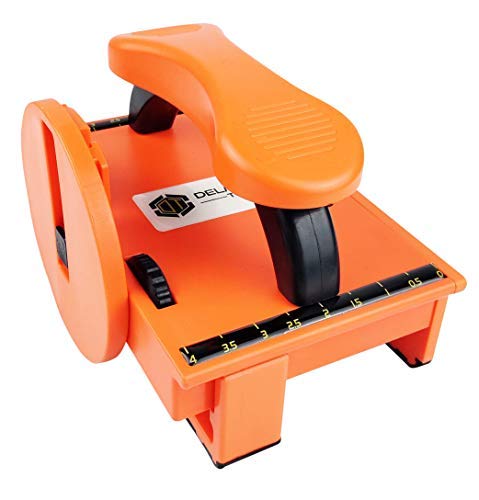Beautiful Plants For Your Interior
Beautiful Plants For Your Interior
Table saws are powerful tools that can cause serious injuries if not used properly. Here are some tips and tricks for safe operation:
Following these basic safety guidelines will help ensure safe operation of a table saw and prevent accidents.

Table saws are powerful and versatile tools that are commonly used in woodworking projects. However, they can also be very dangerous if not used properly. In this article, we will cover some essential tips and tricks for safe table saw operation. By following these guidelines, you can reduce the risk of accidents and avoid injury.
Always Use the Right Blade
The blade you use in your table saw is critical for your safety. Make sure to use the right blade for the material you are cutting. The blade should also be sharp and in good condition. A dull blade can cause the saw to kickback, which can be very dangerous.
Adjust the Blade Height Appropriately
When setting up your table saw, make sure to adjust the blade height appropriately. The blade should be set to a depth that is just slightly deeper than the thickness of the material you are cutting. This will reduce the risk of kickback and provide a cleaner cut.
Use a Push Stick or Push Block
A push stick or push block is an essential accessory for safe table saw operation. This tool helps keep your hand away from the blade while guiding the material through the saw. Make sure to use a push stick or push block for narrow cuts, and whenever you are cutting small pieces of material.
Keep the Table and Blade Clean
A dirty saw blade can cause the saw to vibrate or bind, which can be hazardous. Make sure to keep the blade clean and free of dust and debris. Additionally, keep the table clean and waxed to reduce friction and improve the efficiency of the saw.
Use Safety Features
Modern table saws come with a wide range of safety features to reduce the risk of injury. Make sure to use these features, which may include blade guards, riving knives, and anti-kickback pawls.
Wear Appropriate Safety Gear
When operating a table saw, it is essential to wear appropriate safety gear. This should include eye protection, hearing protection, and a dust mask. Additionally, avoid wearing loose clothing or jewelry that could get caught in the blade.
Use Featherboards
Featherboards are another useful accessory for safe table saw operation. These devices help keep the material flat against the table and against the fence, which can reduce the risk of kickback and produce a cleaner cut.
In conclusion, a table saw can be a safe and effective tool to use for woodworking projects, as long as you follow these essential tips and tricks. Always use the right blade, adjust the blade height appropriately, use a push stick or push block, keep the table and blade clean, use safety features, wear appropriate safety gear, and use featherboards. By following these guidelines, you can avoid accidents and injuries and enjoy your woodworking projects with confidence.
Table: Differences Between a Riving Knife and a Splitter
| Riving Knife | Splitter |
|---|---|
| Attaches directly to the saw blade, moves up and down with the blade | Attaches to the table saw arbor and remains stationary |
| Prevents material from binding during cuts | Requires manual adjustment and removal when changing blades |
| May require blade change to use | Does not require blade change to use |
Check out these helpful resources:
Woodworking Safety Tips
Table Saw Safety Tips and Tricks
Remember to always prioritize safety when operating a table saw, and you’ll be sure to get the most out of your woodworking projects.
A table saw is a tool used for woodworking to cut materials like wood, plastic, and metal. It features a circular saw blade that protrudes through the top of a table, which provides sturdy support for large materials being cut.
Safety gear such as safety glasses, ear protection, and gloves is necessary when operating a table saw. In addition, you should avoid loose-fitting clothing and jewelry that could get caught in the saw.
Kickback is a common safety issue when using a table saw. To prevent kickback, make sure the blade is properly sharpened, use a blade guard, and avoid using the fence as a guide for angled cuts.
When cutting small pieces of material, it’s important to use a push stick to keep your fingers away from the blade. It’s also critical to maintain firm control over the material being cut, using the table saw’s fence or miter gauge to keep it steady.
It is highly recommended that you use a blade guard or riving knife to prevent accidents when using a table saw. Using these safety features will keep you and your materials safe from kickback and other potential hazards.
To maintain a table saw for safe operation, ensure that the blade is sharp, the table is free of debris, and all safety features are in good working order. You should also check that the blade is properly aligned and that the power cord is in good condition before use.
Always follow the manufacturer’s instructions when using a table saw, and never operate the saw when you are fatigued, distracted, or under the influence of drugs or alcohol. Keep your work area clean and organized, use appropriate safety gear, and always use a light touch when guiding your materials through the saw.